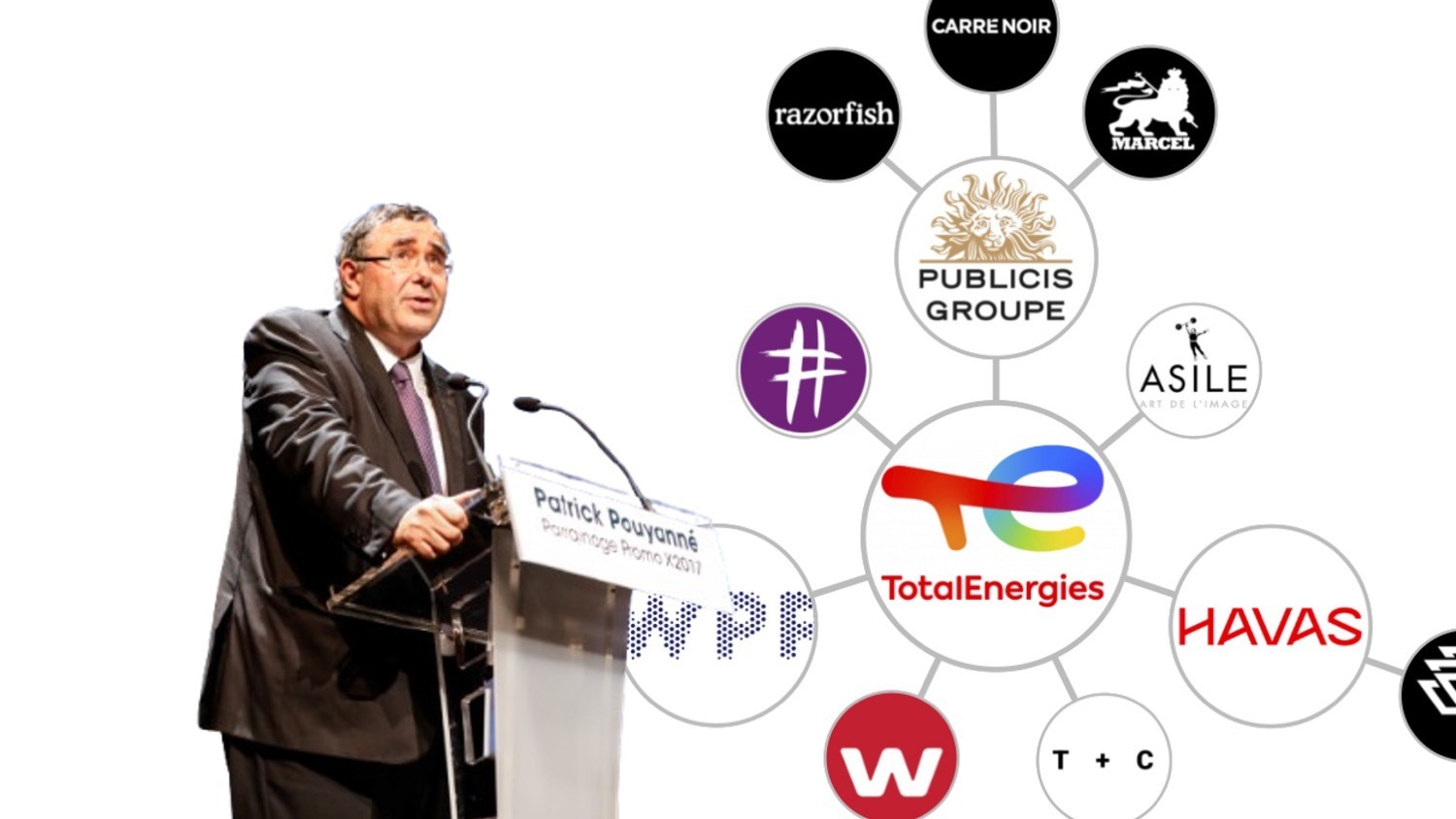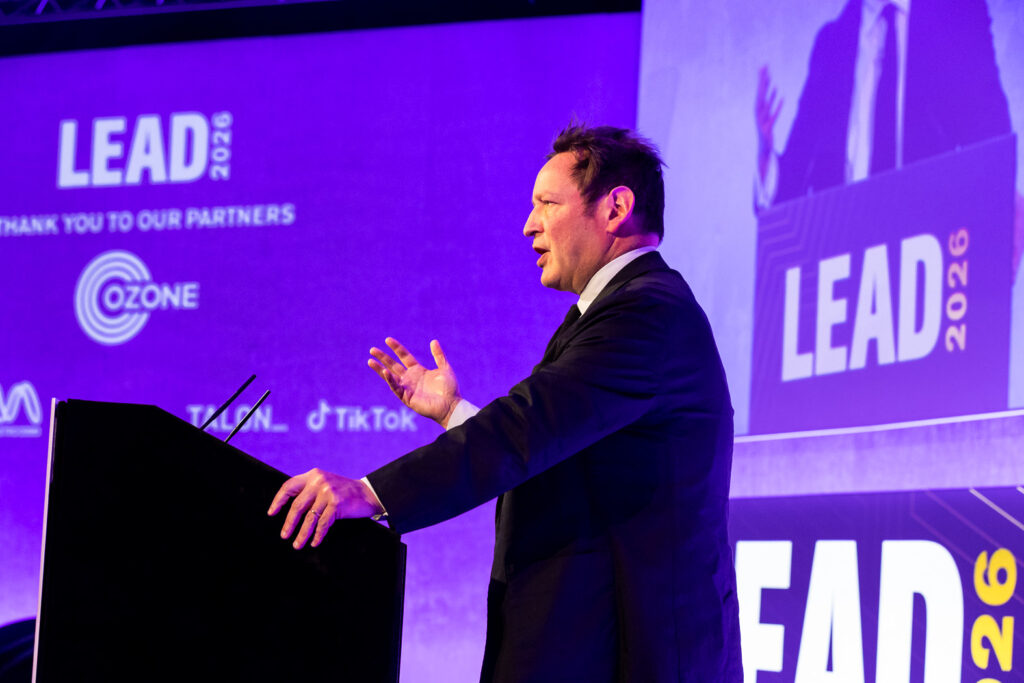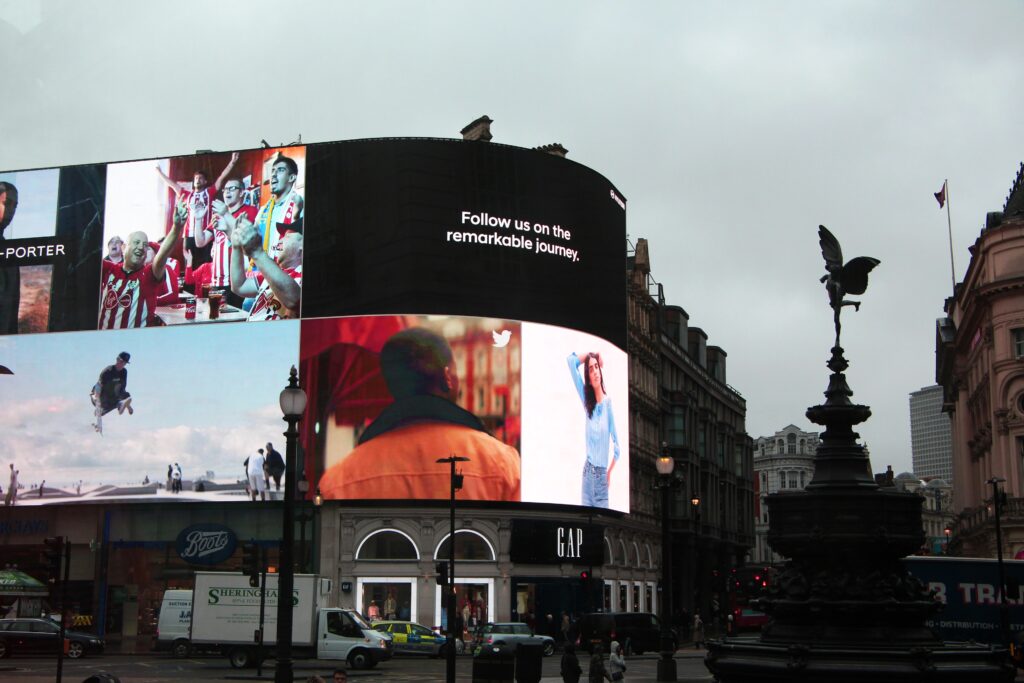In a first-of-its-kind judgment under EU consumer law, a Paris civil court last week ruled that parts of a 2021 rebrand by the French oil giant TotalEnergies misled consumers with claims that it could be a carbon-neutral company by mid-century, even though it has continued to make its main business oil and gas.
While none of the nine advertising agencies involved in the rebrand — mapped here — were charged in the case, the verdict may have big implications for the entire ad industry.
Credit: Kathryn Clare
Why Does This Case Matter?
This is the first time that a court in any country has found that an oil major broke the law with its climate action claims — a decision that lawyers and campaigners have hailed as historic.
While advertising regulators in various countries have ruled particular fossil fuel adverts are misleading — such as a recent ban by the UK’s regulator of a misleading TotalEnergies ad — these bodies are mostly self-regulatory and non-statutory: funded by the advertising industry itself, and without legal authority to enforce their bans.
Jonny White, a lawyer at environmental law firm ClientEarth who worked on the case against TotalEnergies, said the ruling highlights the growing risks for communications agencies that they could find themselves caught up in future greenwashing litigation over their work for oil majors.
The Case
In 2022, a group of French environmental organizations, supported by ClientEarth, filed a lawsuit in Paris against TotalEnergies, charging that it was falsely portraying itself as taking enough action to zero out its carbon pollution by 2050, in line with the goals of the 2015 Paris climate agreement.
The court ultimately agreed with them, ruling that statements by TotalEnergies on its website that it was putting “climate at the heart of its strategy” and would achieve net zero by 2050 were misleading, because the corporation has meanwhile continued to focus heavily on oil and gas production.
Advertising for TotalEnergies displayed similar messages, though the ruling refers only to the statements on its website.
The court has ordered TotalEnergies to remove these statements from its website within one month, and to display the judgement prominently on its website for 180 days. The company will be fined €10,000 for each day that it is in violation of these orders. The court did not rule on whether ad campaigns in France positioning fossil gas and biofuels as cleaner alternatives to coal and oil misled the public, saying these claims fell outside the scope of the consumer law being tested by the case.
TotalEnergies is also the target of a separate criminal investigation into its rebranding campaign led by the prosecutors’ office of French town Nanterre, and could face financial penalties if the case goes against it.
TotalEnergies said in a press release on Friday that it would not appeal the decision, but that “the French people are also entitled to be informed about everything that TotalEnergies is doing for the energy transition and new energies.” The company also added that the ruling only related to statements on its website and not to advertising targeting consumers in France.
What Does the Ruling Mean for Ad Agencies?
From creative strategy to logo design to audio branding, at least nine different agencies were involved in transforming Total into TotalEnergies, according to an analysis of publicly available information sourced from agency websites, industry press, employee social media profiles, and industry award listings.
Three of these agencies are owned by the French advertising conglomerate Publicis — the biggest advertising company in the world by revenue, and one of the “Big Six” holding companies that dominate the global advertising industry with their hundreds of subsidiaries.
Even though no advertising agencies were named in this case, ClientEarth lawyer Johnny White said that the ruling puts “agencies and fossil fuel companies alike on notice — advertising that promotes net zero while the business continues to expand new oil and gas projects is false.”
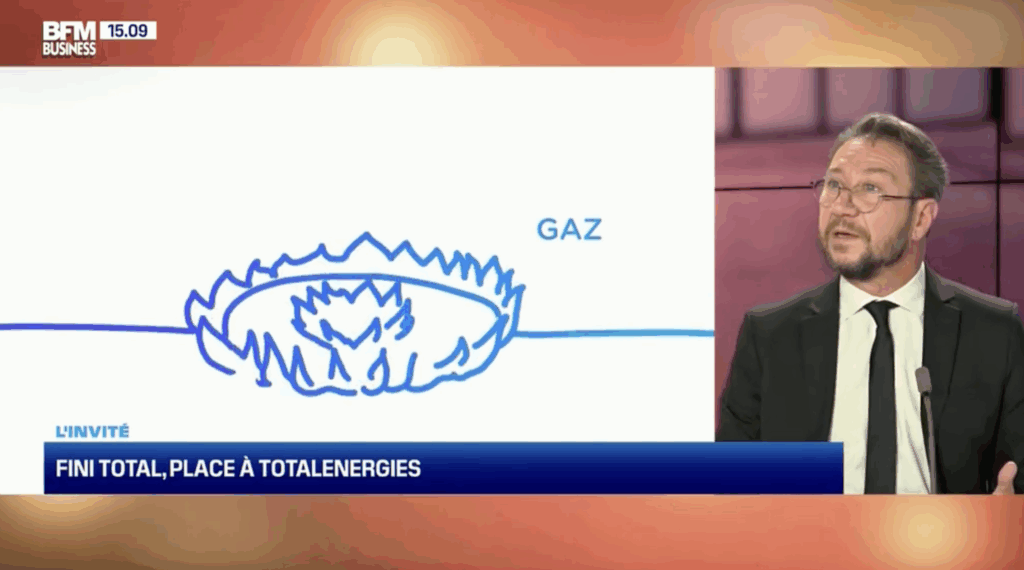
The ongoing criminal investigation into TotalEnergies rebrand adds to “the prospect of further regulatory enforcement and claims against fossil fuel companies under EU consumer law,” he said.
Mathieu Jahnich, a consultant and lecturer in responsible corporate communications at Paris university Sciences Po, said the reality of the climate crisis means agencies must ask themselves difficult questions about who they work for.
“Is the business model aligned with climate science? Is the communications project going to contribute to the transformation of the business? Do we have the expertise to advise our client on how to avoid greenwashing? Will the client listen to us? The answers to these questions will allow a more informed decision on whether or not to accept a project,” said Jahnich.
Has Anyone Ever Sued an Ad Agency for Greenwashing?
So far, no ad agency has been sued for helping a client greenwash itself.
However, a recent case in the United States suggests that this could change.
In February 2024, a subsidiary of Publicis named Publicis Health settled for $350 million with several states over the agency’s work with Purdue Pharma, which the states charged had contributed to the devastating nationwide opioid crisis by falsely marketing the drug OxyContin as safe.
Publicis said at the time that the settlement was “in no way an admission of wrongdoing or liability” and that “we will, if need be, defend ourselves against any litigation that this agreement does not resolve.”
The Ad Industry Backdrop
A growing number of campaigners and political figures say that communications agencies are helping delay climate action by polishing the images of fossil fuel companies.
In June 2024, United Nations Secretary General Antonio Guterres described ad executives working for the fossil fuel industry as “Mad Men fuelling the madness” and called on agencies to drop their polluting clients. He also proposed a global fossil fuel advertising ban.
Some in the industry — among them some employees of major agencies — are frustrated by firms making big public commitments to climate action while still signing contracts with the fossil fuel industry.
Publicis, for instance, says it will be net zero for carbon emissions by 2040, but has failed to rule out working with the fossil fuel industry. “Agencies cannot shirk their responsibility: they bear direct accountability for the messages they disseminate on behalf of their clients,” said Céline Réveillac, co-founder of the Paris-based nonproft Communication et Démocratie. “Claiming to be committed to the energy transition, as the Publicis group does, while working for oil giants, seems hardly acceptable to us.”
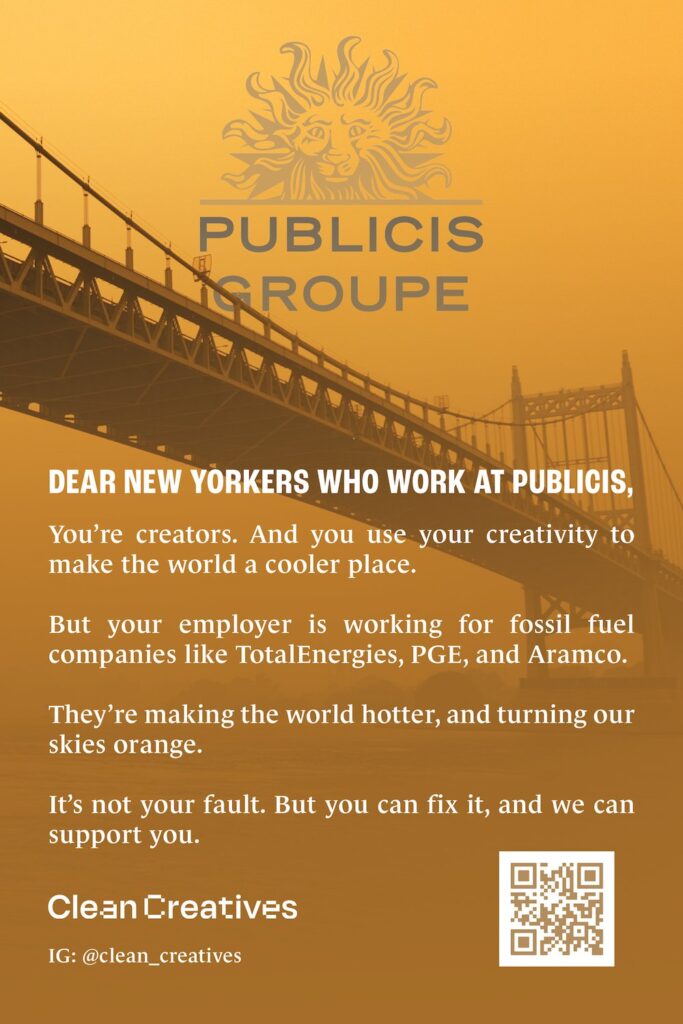
The nine agencies involved in TotalEnergies’ rebrand are part of a larger network of at least 71 marketing, public relations, lobbying, and branding agencies that have worked with TotalEnergies since 2020, according to DeSmog’s research.
Some of these 71 agencies have created lobbying and PR campaigns for TotalEnergies’ new oil and gas projects in countries such as Uganda and Iraq — investments which led the French court to rule that TotalEnergies’ statement about putting “climate at the heart of its strategy” was misleading.
A DeSmog investigation in 2024 found that MetropolitanRepublic — an Africa-wide PR agency owned by British holding company WPP — enlisted dozens of influencers to “squash” local protests in Uganda against TotalEnergies’ planned East Africa Crude Oil Pipeline. Police harassed and beat anti-pipeline activists pictured in documents created by MetropolitanRepublic for an industry award submission.
What Do the Agencies Say?
Most big agencies with fossil fuel clients maintain that they are helping these companies clean up their business models.
Carré Noir, a Publicis-owned agency based in Paris, said in 2021 that it was supporting TotalEnergies’ “ambition to be a major player in the energy transition” by creating the company’s new visual identity, including its logo.
Yannick Bolloré, CEO of Paris-based advertising conglomerate Havas, told industry press in 2023 that “the most effective change comes from within” — after the firm won a huge contract with oil giant Shell. Bolloré also said “we won’t participate in any greenwashing whatsoever.”
A Havas-owned agency named Rosa Paris handled the TV and digital advertising for TotalEnergies’ rebrand.
Several holding companies and agencies that worked on the TotalEnergies rebrand did not respond to requests for comment, including Publicis and its agencies Carré Noir, Marcel, and Razorfish; Havas, WPP, KR Wavemaker, Dissonances, Rosa Paris, and Asile.
Production agency Truman&Cooper and data marketing agency Weborama declined to comment.
Subscribe to our newsletter
Stay up to date with DeSmog news and alerts

